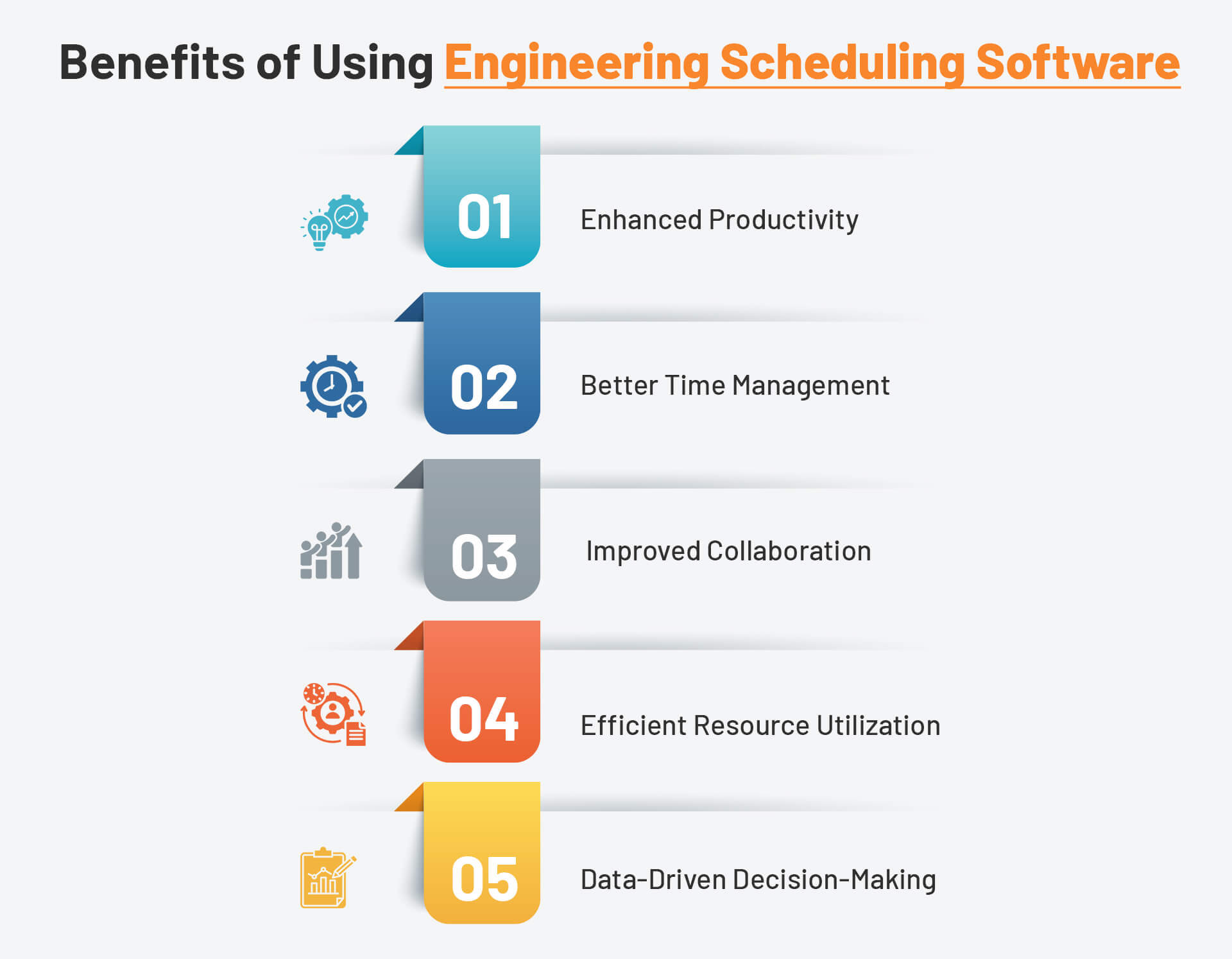Engineering scheduling software revolutionizes work management. It enhances productivity and ensures efficiency. These tools streamline processes, enabling teams to work smarter, not harder. They provide a structured approach to managing tasks, deadlines, and resources.
Now, we will explore how engineering management software improves work management. We will also delve into its features and benefits.
Key Features of Engineering Scheduling Software
Engineering scheduling software offers several essential features. These features facilitate better planning and execution. Here are some key aspects:
- Task Management: Organize and prioritize tasks effectively. Assign tasks to team members with ease. Monitor progress in real time.
- Resource Allocation: Allocate resources optimally. Ensure the right resources are available when needed. Avoid over-allocation and underutilization.
- Time Tracking: Track time spent on tasks. Identify areas for improvement. Enhance time management skills.
- Collaboration Tools: Improve team collaboration. Share updates and feedback seamlessly. Foster a collaborative work environment.
- Reporting and Analytics: Generate detailed reports. Analyze performance and identify trends. Make data-driven decisions.
Benefits of Using Engineering Scheduling Software

Implementing engineering scheduling software yields numerous benefits. These advantages impact both individual and team performance. Let’s explore some of the main benefits:
Enhanced Productivity
Engineering scheduling software boosts productivity. It automates repetitive tasks and reduces manual effort. As a result, team members can focus on more critical tasks. Furthermore, these tools help in setting clear priorities. This ensures that everyone knows what to work on next.
Better Time Management
Effective time management is crucial for any project. Engineering scheduling software provides tools to track time accurately. It helps in understanding how much time is spent on each task. Consequently, it becomes easier to identify inefficiencies and improve time allocation.
Improved Collaboration
Collaboration is key to successful project management. These software tools offer various features to enhance collaboration. For instance, team members can share updates, files, and feedback in real-time. This leads to better communication and fewer misunderstandings.
Efficient Resource Utilization
Optimal resource allocation is vital for project success. Engineering scheduling software helps in managing resources efficiently. It ensures that the right resources are available at the right time. This reduces downtime and increases productivity.
Data-Driven Decision-Making
Data is a powerful tool for making informed decisions. Engineering scheduling software provides detailed reports and analytics. These insights help in understanding project performance. Moreover, they assist in identifying areas for improvement and making strategic decisions.
How Engineering Scheduling Software Improves Work Management
Now, let’s delve deeper into how engineering management software enhances work management. We will explore its impact on different aspects of project management.
Streamlined Task Management
Task management is a core function of any project. Engineering scheduling software simplifies this process. It allows project managers to create and assign tasks effortlessly. Additionally, it provides a clear overview of all tasks. This helps identify bottlenecks and address them promptly.
Effective Deadline Management
Meeting deadlines is crucial for project success. These tools help in setting realistic deadlines. They also provide reminders to ensure that tasks are completed on time. This reduces the risk of delays and ensures timely project completion.
Real-Time Progress Monitoring
Monitoring progress in real time is essential for project management. Engineering scheduling software offers real-time tracking features. This enables project managers to monitor progress continuously. Consequently, they can identify issues early and take corrective actions.
Enhanced Communication
Clear communication is vital for any project. These tools facilitate seamless communication among team members. They provide platforms for sharing updates, feedback, and files. This ensures that everyone stays on the same page and reduces misunderstandings.
Centralized Information Management
Managing information efficiently is crucial for project success. Engineering scheduling software centralizes all project-related information. This makes it easily accessible to all team members. As a result, it becomes easier to manage and share information.
Choosing the Right Engineering Scheduling Software
Selecting the right software engineering management tools is crucial for reaping its benefits. Here are some factors to consider when choosing engineering scheduling software:
- Ease of Use: The software should be user-friendly. It should not require extensive training.
- Scalability: Choose a tool that can scale with your needs. It should accommodate growing team sizes and project complexities.
- Integration: The software should integrate seamlessly with other tools you use. This ensures smooth workflows and data consistency.
- Customization: Look for software that allows customization. This helps in tailoring the tool to your specific needs.
- Support and Training: Ensure that the software provider offers adequate support and training. This helps in addressing any issues and making the most of the tool.
Implementing Engineering Scheduling Software
Implementing engineering scheduling software requires careful planning. Here are some best practices to ensure successful implementation:
- Identify Your Needs: Understand your specific requirements. This helps you choose the right software and features.
- Train Your Team: Provide adequate training to your team. This ensures that they can use the software effectively.
- Set Clear Goals: Define clear goals and objectives. This helps in measuring the success of the implementation.
- Monitor and Adjust: Continuously monitor the performance of the software. Make adjustments as needed to improve efficiency.
Addressing Common Challenges
Implementing engineering scheduling software can present some challenges. Addressing these challenges effectively is crucial for a successful implementation.
Resistance to Change
Team members might resist using new software. To overcome this, involve them in the selection process. Provide comprehensive training and highlight the benefits.
Data Migration
Migrating data from existing systems can be complex. Ensure that you have a clear plan for data migration. Test the process thoroughly before going live.
Integration Issues
Integrating the new software with existing tools can be challenging. Choose software with strong integration capabilities. Work closely with the vendor to address any issues.
Future Trends in Engineering Scheduling Software
The landscape of engineering scheduling software is continuously evolving. Staying updated with future trends can help in making informed decisions. Here are some trends to watch:
Artificial Intelligence (AI)
AI is transforming how scheduling software operates. AI-powered tools can predict delays and suggest optimal schedules. They can also automate repetitive tasks, further enhancing productivity.
Mobile Accessibility
With remote work becoming more common, mobile accessibility is crucial. Future scheduling software will likely offer robust mobile features. This ensures that teams can manage projects from anywhere.
Enhanced Collaboration Features
Collaboration features will continue to improve. Future tools will offer more advanced communication and collaboration capabilities. This will further enhance team coordination and project success.
Final Words
Engineering scheduling software is a powerful tool for work management. It enhances productivity, improves collaboration, and ensures efficient resource utilization. By choosing the right software and implementing it effectively, teams can achieve their project goals more efficiently. Whether you are managing a small team or a large project, engineering scheduling software can provide the structure and tools needed for success.
Integrating software engineering management tools into your workflow can transform how your team operates. This leads to better outcomes and a more organized approach to project management. Investing in the right software and following best practices will help you maximize these benefits.









